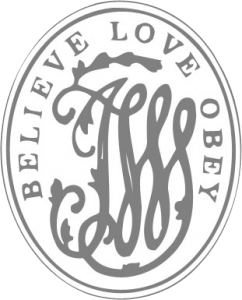Why Pastors Need A Covenant Discipleship Group
By Steve Manskar
 Why should pastors participate in a Covenant Discipleship group with members of the congregation they are appointed to serve? I can think of at least two reasons:
Why should pastors participate in a Covenant Discipleship group with members of the congregation they are appointed to serve? I can think of at least two reasons:
1. Pastors are disciples too.
Pastoral leadership is filled with demands and expectations that often crowd out time for practices that nurture holiness of heart and life. When I ask a pastor about his or her prayer life I too often hear them say "I don't have time to pray." They tell me that planning and leading worship is a job that prevents them from worshiping God with the congregation on Sunday morning. Scripture reading is limited to sermon preparation. Their time is consumed by the demands and expectations of the congregation: committee meetings, sermon preparation, visiting members who are home-bound, in nursing homes, and in hospital.
Experience tells me that pastors are frequently under pressure to meet the demands of church members and conference leadership. Their time is focused on serving the church, district, and conference. The demands of pastoral ministry frequently do not include intentional time for attending to the pastor’s discipleship. I recall a meeting with the Pastor-Parish Relations Committee of a congregation I once served. The committee was preparing for my departure. The purpose of the meeting was to prepare a profile for a pastor who would be a good fit for the congregation. I lead them in a brainstorming session in which we wrote on newsprint the characteristics and skills the members of the committee felt were most needed: Biblical preacher, good singer and worship leader, good with youth and children, likes to visit members who are home-bound and in nursing homes, good teacher, married with children, etc. After they had completed their list I noticed there was no mention of prayer. I asked the committee if they wanted a pastor who was a person who prayed regularly. After an uncomfortable silence, the chairman said, “Yeah. That’d be good. As long as he did it on his own time.”
I suspect this is a typical congregation. Prayer and spiritual disciplines are not regarded as essential to faithful pastoral ministry. Members have been trained to expect their pastors to cater to their personal needs and expectations. Spiritual disciplines and discipleship are seen as a worthy hobby but not integral to pastoral leadership. While many conferences are recognizing that pastors need time and space to attend to their discipleship, the culture of the congregation typically does not.
One way to address this need is for pastors to be in a Covenant Discipleship group with laity from the congregation(s) they are appointed to serve. The weekly process of mutual accountability and support for the practice of discipleship shaped by the General Rule of Discipleship provides the structure pastors need to be intentional about attending to their own relationship with God. It also helps the members of the congregation to see that their pastor is a disciple of Jesus Christ just like them. He or she does not have all the answers. And they need the help and support of fellow Christians to grow in holiness of heart and life, just like everyone else.
When pastors participate in a CD group with laity the congregation sees that discipleship is relational. Theological training and ordination do not exempt anyone from their need for fellow Christians to help them live as faithful witnesses to Jesus Christ in the world. While lay women and men in the pastor’s group help him or her grow in holiness of heart and life, other church members may be encouraged to be more intentional about their discipleship. If their pastor is intentional about his or her discipleship, perhaps others in the congregation will imitate them. 2. Pastors learn about discipleship from disciples.
2. Pastors learn about discipleship from disciples.
Most pastors live in a church bubble. Most of the people they encounter on any given day are church members, other clergy, or conference staff. Most meetings they attend are with other church people, whether of their own or another denomination. The typical pastor’s days are consumed by the church and church related people. Therefore, their experience of discipleship is limited by their vocation.
Pastors need to be in Covenant Discipleship groups with laity because the men and women in the group will teach them about discipleship. Christians live and work in the “trenches” in ways most clergy can only imagine. Lay women and men encounter people, situations, and choices most clergy never will. The truth of discipleship comes into sharper focus for the pastor when he or she listen to the stories lay men and women tell week after week as they account for how they strive to be faithful to Christ in the workplace, on the street, or in the fields, guided by the group’s covenant.
When pastors participate in Covenant Discipleship groups they receive the support and accountability they need to grow in holiness of heart and life. They also learn about discipleship as they listen to their fellow group members share stories of how they witness to Jesus Christ in the office, factory, shop, school, and on the streets and in the fields. When the congregation knows their pastor is working on his or her discipleship every week in a group of fellow Christians, they learn that he or she is a follower of Jesus Christ just like they are. If their pastor acknowledges he or she needs the help of other Christians to grow in holiness of heart and life, then they too can do the same. Striving towards holiness of heart and life makes its way into the culture of the congregation’s life and work.
